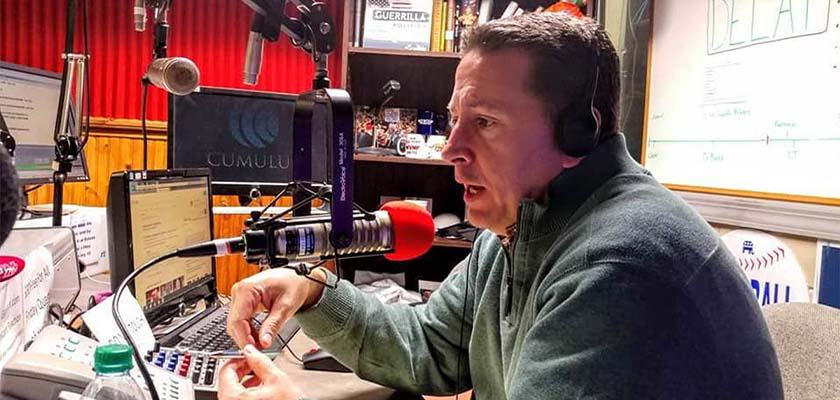School choice in Alabama continues to draw national attention.
Rep. Charlotte Meadows and Sen. Del Marsh have presented a school choice bill in the legislature. The Parent’s Choice Act (PCA) bill seeks to allow parents to use a portion of their tax dollars on the form of education they desire.
Currently, Alabamians are taxed to fund the public education system. The current system limits choices for those who cannot afford alternative forms of education, leaving them with only the public schools within their county or city limits. The PCA seeks to allow parents of students to receive access to a portion of their tax dollars to use them for a school option they choose.
Each student would receive the average cost per student in the state, currently at $6,500.
The bill seeks to establish the Parent’s Choice Board (PCB), which would act in an oversight capacity to ensure that funds are used appropriately. The parents of each student would be able to submit expenses to the Board for approval, upon which the Board would distribute the necessary funds.
Dr. Corey DeAngelis, the National Director of Research at the American Federation for Children and Adjunct Scholar at the Cato Institute, took to the Phill Williams’ Rightside Radio program on Tuesday to discuss his recent article on school choice titled Teachers Unions’ Nonsensical Fight against School Choice Hurts Students, Families.
According to DeAngelis, school unions are masking their desire to maintain a monopoly on the school system under the guise of legitimate criticism.
“The unions’ main argument to protect their monopoly is that school choice 'defunds' public schools,” the article read. “But the money doesn’t belong to the public schools in the first place. Education funding is meant for educating children, not for propping up and protecting a particular institution.”
DeAngelis told Williams that the bill before the Alabama legislature is a solution to the problem of educational monopoly.
“It’s the purest form of funding students directly instead of systems, and it’s the gold standard of school choice going forward," said DeAngelis. "It’s this idea of the education savings account. The same funding that would have followed your child to your residentially assigned, government-run school, you could still take it there if you want, but if not, you could use it to spend on any approved education expenditure. Which could be private school tuition and fees, you could use it for a micro-school, or a pandemic pod, any instructional materials, the money would follow the child. So many states are figuring this out that there isn’t a good reason to fund a building when you could fund the students directly instead.”
DeAngelis claims that the polling done on school choice has overwhelmingly come out favorable, leading him to claim that the opposition to the bill comes from ulterior motives.
“The only people who actually oppose this kind of thing are the establishment monopoly that fights at all costs to trap low-income kids in failing government schools for 13 years without exit options. It’s totally ridiculous,” DeAngelis said. “The polling that I just pulled up in Alabama shows 76% of school parents support education savings accounts, the funding following the child.
“It really shows the logical inconsistency of the other side. Opponents of school choice in K-12 generally support funding students directly for higher education when it comes to the Pell Grant or the GI bill. You can pick your university. You can go to a public or private, religious, or non-religious university. We do the same thing with Pre-K programs, the money goes to the family, and they can choose public, private, religious, or non-religious. It’s only when it comes to K-12 that they get upset about this concept, and it’s because of the difference in power dynamics. Choice is the norm with higher education, pre-K, and everything else, but choice threatens an entrenched special interest: the teachers’ unions, only when it comes to K-12 education. So, they fight to keep your children in their institutions, regardless of how well they do.”
DeAngelis further claimed that no incentives exist for government schools to address failures within the school system. He also claims that the education lobby continues to insist that school choice would negatively impact the government schools system, despite multiple studies to the contrary.
“They actually profit from doing a bad job. They were able to hold children’s education hostage starting in March of 2020, and lobby to the government, and use that as an argument for more ransom payments from the taxpayer," DeAngelis said. "They got tons of bailouts from the federal government: $190 billion nationwide since March of 2020. I put it like this: underperforming private schools shut down, underperforming government schools get more money because they can point to their failures and say, ‘oh, it’s just because we don’t have enough money.’ Meanwhile, we throw more and more money at the problem each and every year, and things don’t get any better.
“Twenty-five of 27 studies on the topic find that private school choice competition leads to better outcomes in the public schools, not the opposite.”
Some opponents of school choice say the process would not allow for as much monitoring of students and would take millions from communities with poorly performing schools.
Others say school choice could lead to discrimination against kids who do not live close to a good school.
To connect with the author of this story, or to comment, email craig.monger@1819News.com.










